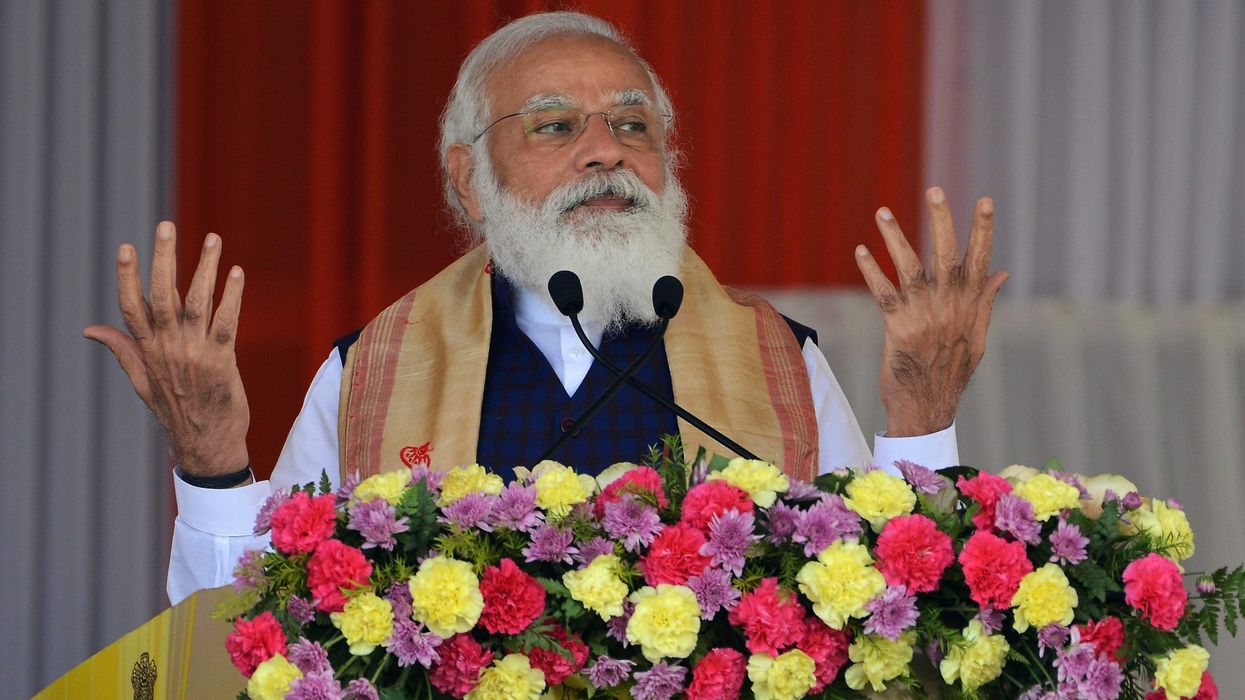MORE THAN a dozen ground and mid-level members of India's ruling Bharatiya Janata Party (BJP) have said that they are disillusioned with the government's handling of the coronavirus pandemic that has devastated the country.
Besides, six state lawmakers in Uttar Pradesh, India's most populous state, have written letters criticising the government for not responding to frantic calls for help from their constituents, reported the Reuters.
A high-profile national level BJP official in New Delhi said he was taking a sabbatical because of the "failings of providing basic medical care, mixed messaging on lockdowns, abysmal medical oxygen cylinder shortages and clear lack of priority".
He spoke on condition of anonymity, citing worries about a backlash for stepping out of line.
The BJP claims a membership of 150 million in the country.
It is highly unusual for those within the party to speak out against Modi, who has dominated Indian politics in his seven years in power and whose control of the BJP has been unquestioned, the report pointed out.
The BJP headquarters and the prime minister's office did not respond to requests for comment.
Kailash Vijayvargiya, a senior BJP leader who is one of its nine general secretaries, has said that he had no knowledge of any unhappiness or dissent within the party.
"The pandemic was tough for everyone and we know some of our workers also lost their loved ones," he said. "At so many levels we have helped each other and there were times when we could not because the situation has been very difficult."
The shortage of hospital beds and medical oxygen in the Covid crisis and the country's stuttering vaccination programme have battered Modi's reputation for action and competence, analysts and opposition leaders say.
Uttar Pradesh election
Analysts say public anger over the handling of the pandemic coupled with even some disaffection in the party rank-and-file could hurt the BJP when it faces its next political test - an election early next year in politically crucial Uttar Pradesh, currently ruled by the BJP.
Suhas Palshikar, a columnist and former professor of political science who has written extensively about the BJP, said unhappiness among these people could be critical.
"This will surely mean less voter mobilization in favour of BJP and therefore a crisis in constituencies that are borderline in terms of margin of victory/defeat," he said. However, he added that the Uttar Pradesh election was still six months away, which was "a long time in politics".
Doing badly in Uttar Pradesh would be a major setback for the BJP, analysts say, and could have a knock-on effect on the next general election, although that is not due until 2024.
According to two opinion polls last month, Modi's approval ratings have fallen to a historical low. But his ratings still remain far above leading opposition figures.
Om Gaur, the national editor of one of the largest-selling newspapers, the independent Dainik Bhaskar, however, said ground reports from 12 of India's 28 states indicated the BJP had been severely damaged by the handling of the pandemic and that "the prime minister has never had such a tough moment in the past seven years".
"Policy failure has enraged even those who were Modi loyalists, they continue to support his outlook on religion and nationalism, but question his ability to manage the crisis," he said.
Muralidhar Rao, another BJP general secretary, said he was not aware of any anger against Modi "whether it's in the party or among voters".





